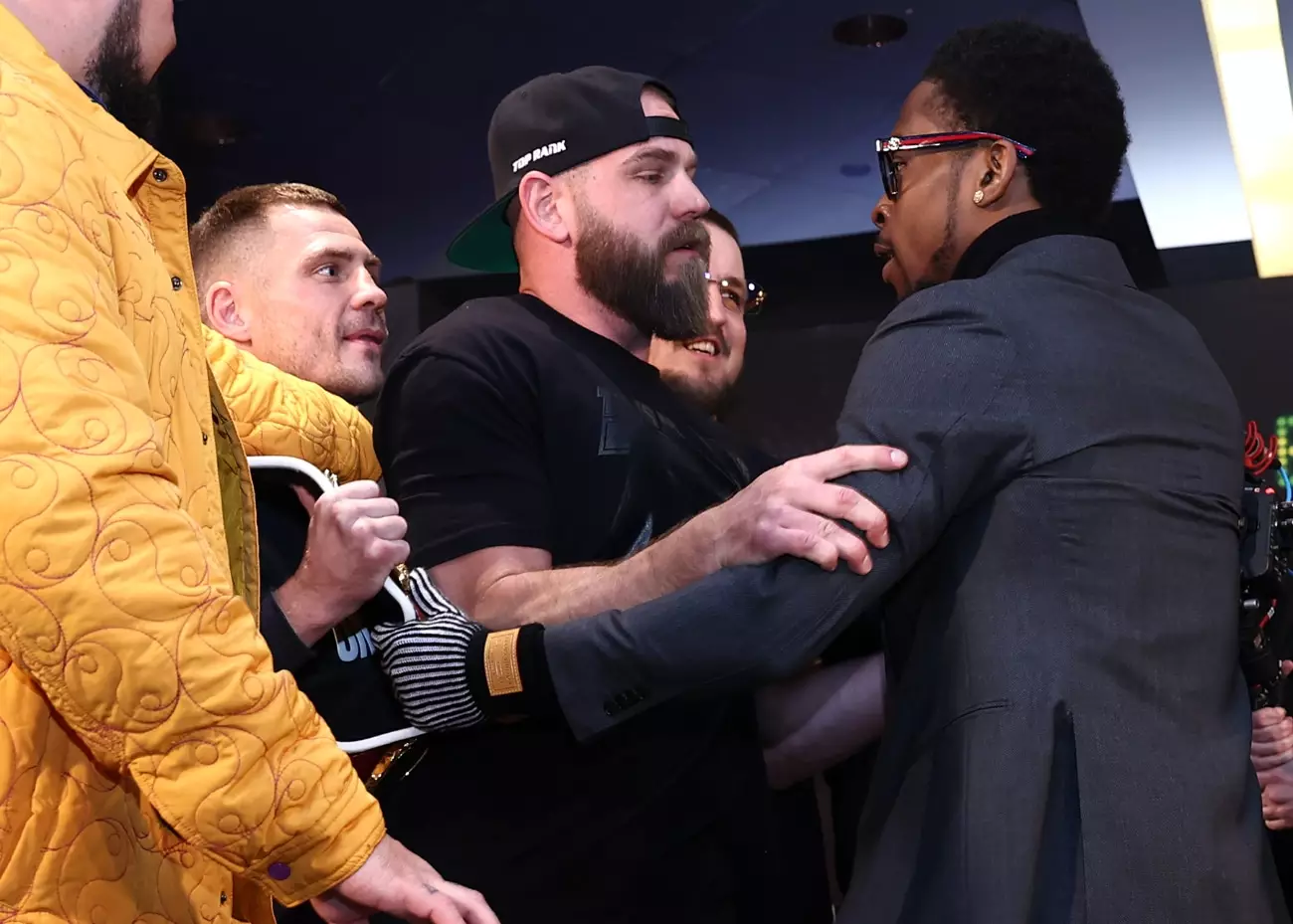In the world of professional boxing, where emotions often run high and rivalries can easily escalate, the recent spat between Keyshawn Davis and WBO lightweight champion Denys Berinchyk has sparked significant discussion. Central to this controversy are accusations of racism leveled by Davis against Berinchyk, stemming from a bizarre incident involving a box allegedly containing a selection of bananas and watermelons. The anonymous delivery of this box has ignited a firestorm of claims and counterclaims, with Teofimo Lopez now emerging as a potential instigator of the scenario.
Davis’s assertion that Berinchyk is a racist due to the unidentified delivery raises serious questions about the implications of such an accusation. Words like “racist” carry immense weight and can tarnish reputations irreparably, particularly when based on circumstantial evidence or conjecture. Davis confronted Berinchyk publicly, yet no substantial evidence supports his claims. Despite Berinchyk’s vehement denials, Davis’s allegations persist, leading to speculation that if anyone is to blame for the misunderstanding, it could be Lopez, who has been humorously labeled as a potential prankster in this unfolding drama.
In today’s digital age, the repercussions of such conflicts can extend far beyond traditional media coverage. Lopez’s cheeky social media post regarding the incident has only fueled rumors and provided a fertile ground for further speculation. Social media platforms enable athletes to directly communicate with fans, but they can also distort narratives. Lopez’s hinting that he might be behind the prank shifts the focus from Davis’s troubling claims to a more ambiguous dialogue about sportsmanship and character integrity.
While banter and rivalry are part and parcel of boxing, the fine line between humorous rivalry and malicious character assassination must always be considered. It’s vital to recognize the gravity of accusing someone of racism; if Davis is indeed wrong—whether intentionally or otherwise—he could significantly damage Berinchyk’s reputation and career without just cause. It’s these types of situations that often lead to wider societal implications, amplifying discussions about race, perception, and accountability.
Amidst the drama, Davis maintains a resolute focus on his upcoming fight against Berinchyk, emphasizing his ambition to claim the world title. Davis exudes a confidence typical of many fighters at his level, insisting that the title is the ultimate marker of greatness in the sport. His assertion that once he has that belt, he will cement his place among the best, reflects the competitive spirit that drives athletes in this demanding environment. However, it also raises pertinent questions about his approach to the sport—specifically, his tendency to avoid higher-risk opponents.
Davis has been vocal about his past conversations regarding Berinchyk, suggesting that he is not just motivated by winning but also by the narrative built around their rivalry. By expressing prior knowledge of Berinchyk’s skills and suggesting he had been eagerly anticipating a bout, he positions himself as a fighter with a strategic mindset. Yet, there is an underlying current that suggests he might prefer bouts that present a lower risk to his undefeated record, particularly given his recent dismissal of opponents without belts, while simultaneously seeking a match with Berinchyk, a champion.
The unfolding saga between Keyshawn Davis, Teofimo Lopez, and Denys Berinchyk highlights the intersection of sportsmanship, character, and the significance of accountability both in and out of the ring. The consequences of careless accusations are profound, underscoring the importance for fighters to be responsible with their words. The boxing world, while intensely competitive, must strive for integrity even amidst the chaos and drama.
As fans await the matchup between Davis and Berinchyk, the conversations surrounding this event serve as a reminder that in the quest for greatness, the pursuit of personal and professional integrity must not be sidelined by sensationalism or conjecture. Ultimately, the responsibility lies with athletes not only to show their skills in the ring but also to uphold the virtues of honor and character that define the sport.


Leave a Reply